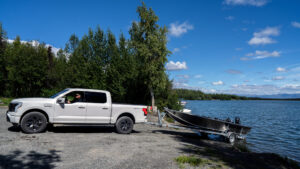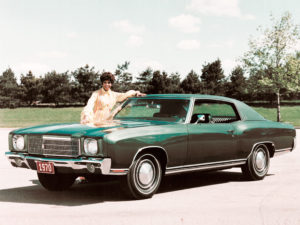Talk about a long tease. Volkswagen has released an image of the vehicle dubbed Project Trinity, an all-electric sedan that’s not expected to hit the market until 2026.
The project takes its name from three new design these: a newly developed electronics platform with state-of-the-art software, the simplification of the supply structure, and fully networked and intelligent production at the main plant in Wolfsburg.
“Trinity is a sort of crystallization point for our Accelerate strategy, a lighthouse project, our software dream car,” says Ralf Brandstätter, CEO of the Volkswagen brand.
The car is designed to fast forward automobile intelligence. It will set new standards for range, charging speed, and digitalization, according to the automaker. In regards to charging speed, Volkswagen anticipates that vehicle charging will be coming as fast as a petrol refuel.
Additionally, Trinity will reach production with Level 2+ advanced driver-assistance system (ADAS) technology. However, VW says that the car will be able to drive “highly automated according to Level 4” standards.
The gap between Level 2 and Level 4 ADAS standards is large. According to NVIDIA, Level 2+ adds surround perception and articial intelligence as a layer onto the typical Level 2 experience. This added technology allows the vehicle to perform some automated maneuvers, such as lane changes, while the driver is still in control of the vehicle. Driver monitoring is also a part of Level 2+ tech.
“We are using our economies of scale to make autonomous driving available to many people and to build a learning neural network. In this way, we are creating the conditions for the continuous exchange of data from our vehicle fleet—for example, on the traffic situation, on obstacles or on accidents,” says Ralf Brandstätter.
Trinity thus gives people time and saves them stress. After a long highway trip, you arrive at your destination relaxed. Because you have been driven by a chauffeur to your vacation or to your home after work. “Trinity therefore becomes a kind of ‘time machine’ for our customers,” says Ralf Brandstätter.
Volkswagen intends to build future vehicles with fewer variants, standardizing hardware in the process. In a release, the company said, “The cars will then have virtually everything on board and customers will be able to activate desired functions “on demand” at any time via the digital ecosystem in the car. This will significantly reduce complexity in production.”
“In the future, the individual configuration of the vehicle will no longer be determined by the hardware at the time of purchase. Instead, customers will be able to add functions on demand at any time via the digital ecosystem in the car,” said Brandstätter.









